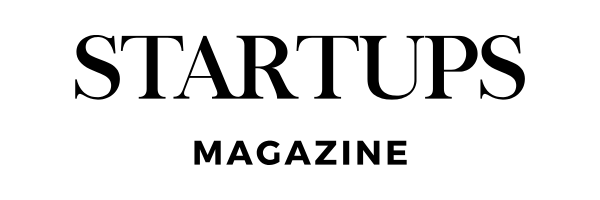)
As the stadium lights turn down, the venue thrums with an energy so palpable that the air might spontaneously combust. Seemingly on cue, a fan lets out an excited shout, and suddenly hundreds, if not thousands, join in, the volume building like a wave. The roar becomes deafening, with the promise of the highly anticipated performance ahead. Suddenly, lights sweep across the stadium to settle onto the glittering figure now rising from the depths of the stage, poised with a mic in hand as she croons, “Welcome… to the Eras tour!”
The Taylor Swift Effect, as it has been called, is more than an effect – it’s a star power phenomenon that seemingly envelopes entire cities, economies, and industries in its wake. Taylor Swift is one of the most influential trailblazers to grace the entertainment industry over the last two decades.
The enthusiasm of Swift’s fans is not only good for ticket sales – it’s good for business at large. Swift’s recent concerts gave the US economy an estimated boost of $5.7 billion, not just in terms of tickets but also costumes, travel, hotels, food, and other ancillary spending. As Forbes aptly put it, “Fandoms are a powerful economic force” – and the Swiftie fandom might be the most considerable force we’ve encountered yet.
The Swift Economy: By the Numbers
Of course, the influence of celebrities on the hospitality business is hardly a novel concept. But at this particular time in history, the impact of public figures is at its peak. Hotels that have hosted celebrities often see a 25% increase in inquiries after the celebrity’s stay. Some studies report hotels that have been the site of high-profile celebrity events see a 50% increase in bookings in the following year.
Today, digital channels provide the illusion of connection and proximity; unlike decades past, celebrities have a direct line to their fans from anywhere in the world, at any time. And when we consider Taylor Swift’s influence by the numbers, the results are nothing short of astounding.
The Common Sense Institute reported that Swift’s U.S. tour could generate $4.6 billion in total consumer spending (larger than the GDP of 35 countries), with a $140 million boost to Colorado’s GDP alone (Swift brings her tour to Denver in July). The Washington Post used World Bank data to report that she made more than the annual economic output of 42 nations in 2022.
When we consider Swift’s impact on the economy, it should be no surprise that the singer’s influence has reached the hospitality industry. When Swift announces a concert, fans from around the world flock to the city, leading to an increase in hotel bookings.
However, Swift’s influence extends beyond her concert dates. Fans often travel to places she has mentioned in her songs or social media posts, leading to increased tourism and hotel bookings in these areas. For example, after Swift mentioned the city of Nashville in her songs and interviews, the city saw a boost in tourism, benefiting local hotels. In 2014, she stayed at the Castle Hill Inn in Newport, Rhode Island, while house hunting in the area. After her stay, the hotel received widespread media attention, leading to increased bookings and revenue. Whenever she is nominated for an award, fans and media flock to the city where the award ceremony is being held, leading to a surge in hotel bookings.
With the recent Eras tour spanning 20 U.S. cities (including 53 nights of concerts), the U.S. Travel Association reported that each Swiftie spent an average of $1,300 on travel, hotels, food, and merchandise – far outpacing typical spending patterns. The association estimates that Swifties collectively contributed to $10 billion or more in economic impact, while STR estimates that hotels pulled in $208 million in revenue following Swift’s US shows over the summer, without accounting for extended fan stays and other factors.
To this effect, hotels in cities where Swift toured saw record-high occupancy rates and a significant uptick in average daily room rates. To take a closer look at Swift’s impact on the industry, the DerbySoft business intelligence group pulled ADRs for cities across North America where Taylor Swift had a concert to see how much rates increased from 2022 to 2023. The results are undeniably staggering: Atlanta, Chicago, Detroit, Pittsburgh, and Cincinnati hotels saw an average uptick in ADR of 71%.
Swift’s multifaceted influence proves a lucrative force in the hospitality industry. With the high demand for accommodation, hotels can afford to increase their room rates. This is especially true for hotels that are within walking distance of the concert venues. Aside from hotel bookings, fans also spend on food, transportation, shopping, and other local attractions. This increased spending benefits not just hotels but also other businesses in the area.
Moreover, the artist’s tours have also influenced hotel marketing strategies. Many hotels have created Taylor Swift-themed packages or promotions to attract her fans. These packages may include concert tickets, special room decorations, exclusive merchandise, or even a Taylor Swift-themed menu at the hotel restaurant.
With fans coming from different parts of the world, hotels have the chance to showcase their services and facilities to a global audience. This can lead to increased brand recognition and potentially attract more international guests in the future.
Just as the US dates that Swift performed in 2023 did, her international concerts in the new year are expected to roll in another billion dollars and draw fans of all ages, with plenty of enthusiasm for and money to spend on trips and outings to see the entertainer. It will be interesting to see if those cities experience a similar ADR uptick to the U.S. cities that benefited from her tour this year.
We’ll keep you posted!











